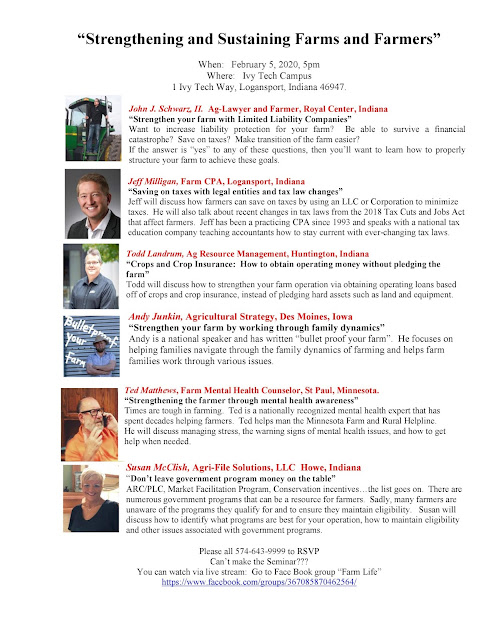LLC's Can Save Farms
4 types of LLCs that can benefit farm operations TAGS: RISK MANAGEMENT FARM SUCCESSION FARM OPERATIONS Tom J. Bechman LIMIT LIABILITY: Especially farms that operate semitrucks, even to haul their own grain, may want to consider separate LLCs for liability reasons, says lawyer John Schwarz II. If you don’t already operate your farm business through limited liability companies, see if one or more of these would work for you. Darrell Boone | May 07, 2020 John Schwarz II, Royal Center, Ind., is a practicing lawyer and a farmer. He strongly believes in limited liability companies as a great way to structure your farm business. An LLC limits personal liabilities and provides other benefits. So why don’t more farmers use them? “The main reason is fear,” Schwarz says. “People fear things that sound complicated, and if you want to see farmers head for the door, just mention the dreaded words ‘more paperwork.’” Related: Get your farm ready to 'play defense'...



